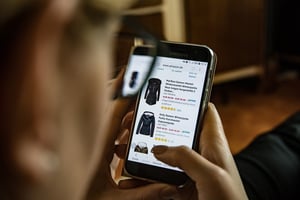Brands sometimes need to communicate decisions they know will be unpopular.
What do two of the country’s leading banks, a powerhouse advertising company and high-profile business leaders have in common?
Well, they have all been making headlines over changes to working-from home-arrangements.
Alterations to home and hybrid working policies are increasingly gripping the news agenda and leading debate.
And how those stories are handled offers crisis communication and media training lessons.
Not got time to keep reading? Listen to the blog instead
Let’s look at a few recent office attendance stories that have grabbed the headlines.
Barclays generated headlines last week after becoming the latest blue-chip firm to announce changes to its flexible working policy.
The bank told its employees they would need to come into the office three days a week instead of two.
Its spokesperson said: “We recognise the benefits of balancing flexibility for colleagues with the importance of working together to collaborate in our physical locations.”
This announcement came on the same day Lord Sugar told the BBC he wants to see workers “get their bums back into the office.”
The Apprentice star, who owns the property empire Amsprop, said: “I'm a great advocate of getting them back to work because the only way an apprentice is going to learn is from his colleagues."
"It's small things, like interaction with your more mature colleagues, that will tell you how to do this, how to do that.
"That is lacking in this work-from-home, zoom culture."
January was a busy month for back-to-the office stories
The comments from the businessman-turned-TV-personality mirrored those of Lord Rose, the former boss of Marks and Spencer and Asda, who earlier in the month claimed those working from home are “not doing proper work”.
He added: "We have regressed in this country in terms of working practices, productivity and in terms of the country's wellbeing, I think, by 20 years in the last four."
Advertising and PR group WPP generated the most back-to-the-office coverage.
The company found itself at the centre of a series of damning headlines and extensive commentary after telling more than 100,000 staff that they needed to return to the office at least four days a week from April.
In a staff memo leaked to the media, boss Mark Read said: “Spending more time together is important to all of us, and we are making a change to help that happen.
“From the beginning of April this year, the expectation across WPP will be that most of us spend an average of four days a week in the office.”
Another bank, Lloyds, also made headlines after telling senior staff that bonuses could be cut if they do not go into the office at least twice a week.
The extensive coverage these stories have created shows there is massive media interest in the subject.
It is a hot topic. And it seems certain to remain that way for the foreseeable future.
Why? Because it provides the Trouble element of TRUTH – the model we use during our media training to show what makes something newsworthy. It stands for Topical, Relevant, Unusual, Trouble and Human.
Bosses want workers to return to the office more often. And many workers are not happy about it. Both sides have strong views – it is an emotive and divisive topic that impacts many of us.
And those unhappy about being asked to return to the office are increasingly willing to share their displeasure.
If we revisit the WPP story, the return to office mandate sparked a petition demanding the policy be revoked.
At the time of writing, it has just under 20,000 signatures and is accompanied by text that calls the move a “step backwards in supporting employee wellbeing and work-life balance.”
Lord Rose’s comments met with a similarly angry response.
The BBC reported that more than 350 people contacted it with stories about homeworking after his interview. The BBC News website ran a follow-up article under the headline: 'We are not lazy' - Working from home criticism sparks anger.
So, what does this mean for you?
Well, if changes to working patterns are on the horizon at your organisation, they need to be included in your crisis media management plan.
It is a tricky issue with many possible pitfalls and the potential to become a perfect storm.
The WPP portfolio includes the Burson agency, which its website describes as “leaders in building and protecting client reputations”. Despite that expertise at its disposal, its back-to-work memo has become a PR and reputation nightmare.
It shows you must plan for the worst, even if you think staff will accept the decision.
Some of the fallout we have seen could be avoided with good communication.
One of the criticisms of WPP is that the decision was announced in an extensive email sent to all staff.
A senior executive quoted in City AM said: “The way it was dumped in an email was so poor for a communications company.”
And other reports include accusations the company tried to “bury” the news – it came a long way down the memo, below sections on ‘Clients, creativity and our work’ and ‘Technology, data and AI’.
Engaging with employees at the earliest opportunity is vital for companies in this situation.
Understanding their concerns and issues and helping them to see why hybrid working changes are needed – and the potential benefits - can ensure embarrassing leaks are avoided.
It is also critical that announcements acknowledge the hurdles people may face in returning to the office more often and highlight the support offered.
And that basics, including adequate office space and car parking, have been covered – things that often appear to be overlooked. When the Met Police announced that civilian staff would be required to work in the office three days a week, one of its intelligence analysts told the media that there were not enough desks.
She said: "In my office, there are four desks and seven people, and even now, with the reduction in office attendance, I can struggle to find a desk.”
Of course, the relentless back-to-the-office coverage does not just offer crisis media management lessons.
It is also something media spokespeople need to carefully consider ahead of any interviews.
During our media training, we discuss the tricky ‘while you are here’ and ‘and finally’ questions journalists often ask at the end of interviews.
These tend to be based on topical issues that are unrelated or only loosely linked to the main interview subject.
These questions have the potential to derail an interview and distract from the message you want to get across.
With many businesses pushing back on working from home arrangements, reporters are likely to ask if your organisation has similar plans. Or invite you to speculate about when workers may be required to return to the office more regularly.
Poor preparation - or handling that question badly - could see you unwittingly caught up in this divisive and emotive topic.
Media First are media and communications training specialists with nearly 40 years of experience. We have a team of trainers, each with decades of experience working as journalists, presenters, communications coaches and media trainers.
Click here to find out more about our media training and crisis communication courses.
Subscribe here to be among the first to receive our blogs.




